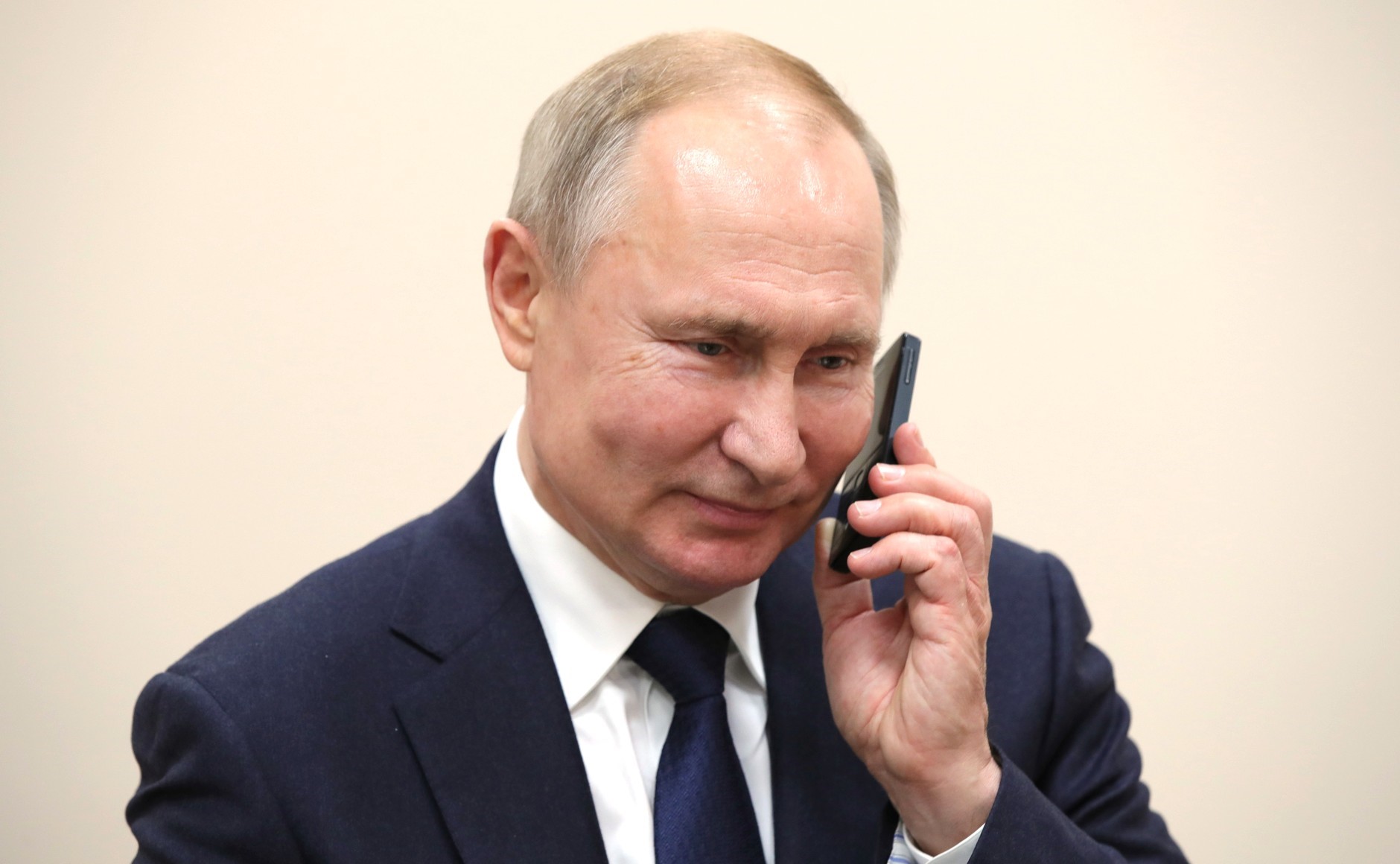
Russia Monitor is a review of the most important events related to Russian internal and external security, as well as its foreign policies.
Date: 17 November 2021
Telephones and Rockets. A new ‘Normandy format’?
Russian diplomacy has successfully dragged Germany and France into talks on the situation on the Belarusian border. Migratory pressure was more and more doomed to failure with each passing day in the face of effective defence of Poland’s borders, so the Kremlin is being helped — not for the first time — by Angela Merkel and Emmanuel Macron.

Belarusian Defence Minister Viktar Khrenin, in an interview with Al Jazeera TV, assured that “if necessary” Iskander missile systems would be sent to Belarus from Russia. Lukashenko had said this a little earlier, arguing that Iskanders would strengthen the Western border of the Union State of Belarus and Russia and that he was asking Putin for them. This is the latest installment of Minsk’s war rhetoric, which is not backed by facts. However, it must be stressed that this is not, as some believes, Lukashenko acting alone and putting pressure on Russia. It is Moscow’s part in the military threats and escalation of tension between Belarus and Minsk. On November 12th, Belarusian and Russian airborne troops took part in exercises near the border with Poland. Earlier, Russia sent long-range bombers over Belarus, and fighter jets as part of “military exercises”. Putin’s and Lukashenko’s objective is clear: to intimidate the European Union (which is what Lukashenko did when he threatened to block the transit of Russian gas). What for? Firstly, so that the West starts talking to him, which means the end of his isolation and the de facto legitimisation of his presidential election victory stolen with falsifications in the summer of 2020. The second step will be, as a result of these talks, if not to reduce the existing sanctions, then not to introduce new ones against Belarus. And, perhaps, financial support for ‘refugees’ in Lukashenka’s country, which would partly compensate the regime for the losses resulting from the current sanctions.
On Tuesday, 16th November, Putin and Lukashenko spoke by phone, including the Belarusian dictator’s earlier conversation with Merkel. The telephone conversation between the acting German chancellor and Lukashenko is effectively a recognition of him as the legitimate leader of Belarus. This is something the West has shied away from since the fraudulent presidential elections in the summer of 2020 and the subsequent wave of brutal repression by the regime. Angela Merkel, who is leaving office, has done a great service to Putin by establishing direct contact with Lukashenko and legitimising the illegitimate regime in Belarus. On November 15th, she had a nearly hour-long telephone conversation with the dictator. The telephone conversation between the presidents of France and Russia lasted even longer, almost two hours, on the same day. They agreed that the migration crisis on the borders with Belarus should be de-escalated.
The sequence of events is as follows: Putin talking to Lukashenko first, then Putin talking to Merkel, then Merkel talking to Lukashenko and Macron talking to Putin. Next will perhaps be a conversation between Macron and Lukashenko. We are seeing the construction of a kind of new Normandy format, that is, a move towards Paris and Berlin discussing certain Eastern European problems with Moscow over the heads of the people in the region. It is true that Ukraine is participating in the Normandy format, but the other three are Russia, Germany and France. Now we may have to deal with an even more dangerous quartet: Russia, Belarus, Germany and France. They will talk over the heads of Poland, Lithuania and Latvia. Not only about the situation on the border or the problem of migrants in Belarus, but probably also, for example, about Nord Stream 2. It is worth noting that Moscow, which initially directed everyone to direct talks with Lukashenka, has now changed its line. — Russia could, as an intermediary in negotiations, help to solve the migration crisis on Belarus’ borders with the EU, the Kremlin spokesman said on November 15th. Dmitry Peskov, by the way, assessed that Russia is already partly playing the role of an intermediary.
Support Us
If content prepared by Warsaw Institute team is useful for you, please support our actions. Donations from private persons are necessary for the continuation of our mission.
All texts published by the Warsaw Institute Foundation may be disseminated on the condition that their origin is credited. Images may not be used without permission.















